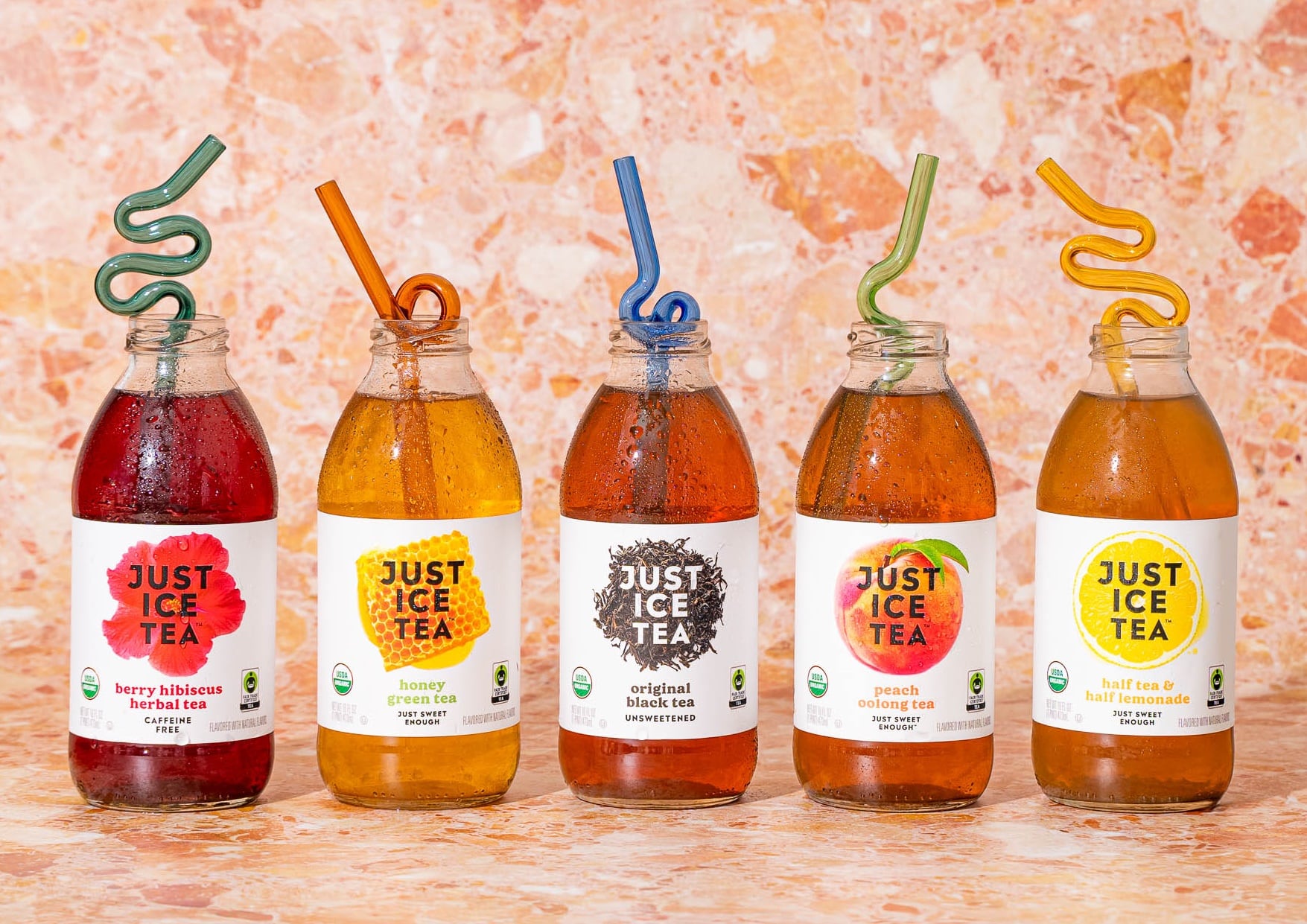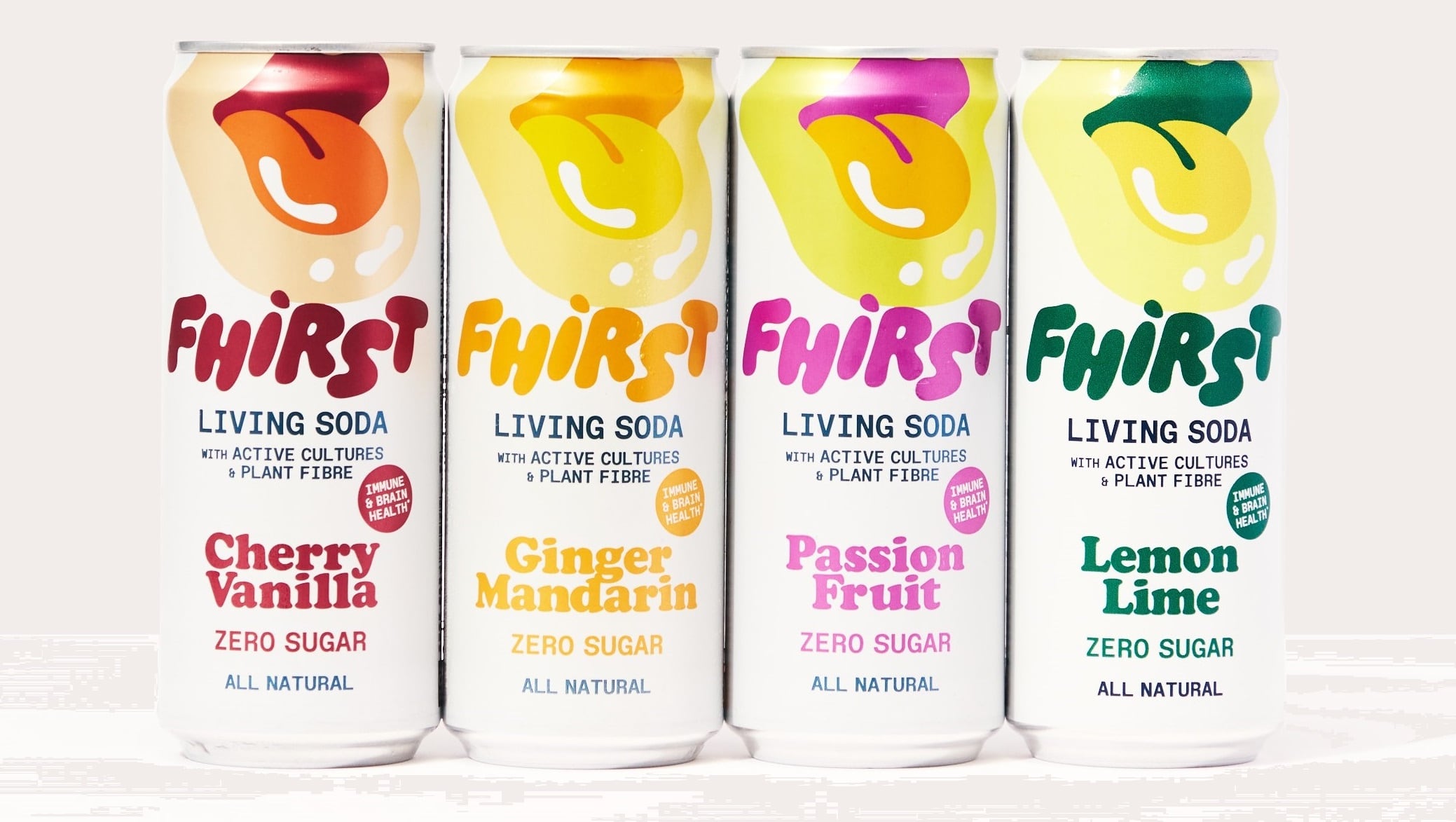The story is one of rising from the ashes. Seth Goldman founded Honest Tea in the 90s; sold it to Coca-Cola, then saw the brand ditched by the beverage giant during a pandemic reshuffle. But rather than lament a decision he had no control over, Goldman saw this as a ‘call to action’ to re-enter the RTD space with an Honest Tea 2.0 that’s fine-tuned to the needs of today’s consumers.
Just Ice Tea is gearing up for a mega summer season with expansion across to more than 6,000 new stores in Target, CVS, Walmart and more across the US: now reaching more than 12,000 stores in total.
So what did Goldman learn from Honest Tea and how has that informed the development of Just Ice Tea? And with those valuable learnings, where can the brand go next?
BD: Introduce us to Just Ice Tea!
SG: We have to go all the way back to 1998, when I started Honest Tea. Because Just Ice Tea is really a second generation or reincarnation of that brand.
Honest Tea was the first organic and Fair Trade bottled tea, but was also really the first successful less sweet drink commercialized in the US (there were other brands that had tried to sell less sweet drinks, but had never really gotten to scale). Honest Tea broke through and took this group from the natural channel into the mainstream channel.
We sold Honest Tea to Coca-Cola in 2011, and it continued to grow. And then, coming out of the pandemic, Coca-Cola decided they had to simplify their business and cut a bunch of brands, and Honest Tea was one of them.
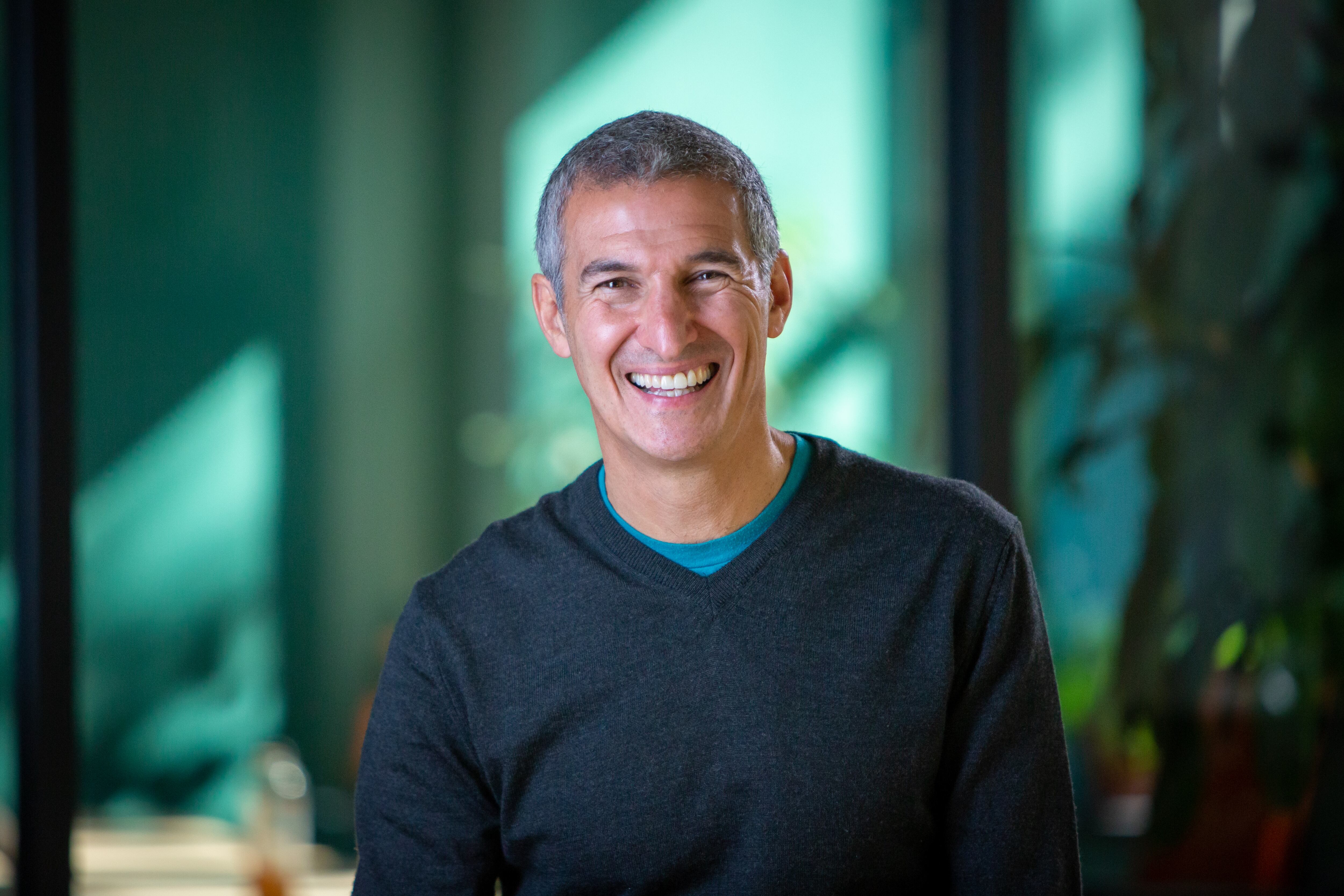
I realized there was going to be a powerful market opportunity that we were uniquely qualified to launch into. It was easy to get Honest Tea co-founder Barry Nalebuff on board… and we came up with the Just Ice Tea name over a weekend!
So I got that call from Coca-Cola in May of 2022 and by September we were on the shelf with Just Ice Tea. And now it’s become the fastest growing brand in the natural channel and its growing very quickly into mainstream channels as well. And a lot of that rapid growth has been due to the fact that we had a team and network of people who had built Honest Tea and so were poised to do it again.
Who’s your target market for Just Ice Tea?
We talk about the conscious consumer. So health conscious in one sense, environmentally conscious in another, and then people who are also conscious that their purchasing decisions impact people down the supply chain.
So for us, certainly there’s Fair Trade and certification, we’re not just paying living wages to the people in the growing communities, we’re also investing back into those communities.
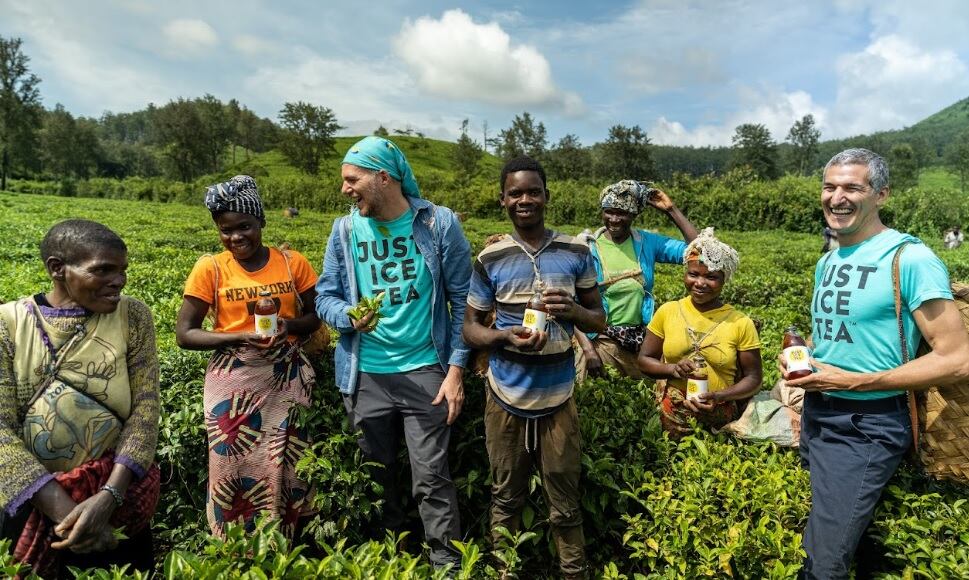
So health, environment and broader consciousness. And at the same time, it’s delicious tea!
You’ve described Just Ice Tea as Honest Tea 2.0. So what’s different?
Times have changed! Honest Tea, I would say, was more leading edge. What we’re doing with Just Ice Tea, we’re leaning harder into those missions, but [now] they’re more readily welcomed and accepted by the consumer.
When we started Honest Tea, there wasn’t even a supply chain for Fair Trade, organic, and so on. We had some organic ingredients but no organic certification.
With Just Ice Tea, we’re able to tap into existing consumer behaviors and mindsets. Everything was organic, Fair Trade from day one.
My co-founder is chef Spike Mendelsohn. So we now have more of a chef crafted approach, meaning some subtle tastes, cleaner tastes. We sweeten with agave.
Another thing that’s interesting is that the market has shifted as well. The bottle ice tea market went through a shakeout during the pandemic, a lot of brands disappeared, a lot of brands that were in glass bottles shifted to plastic bottles.
Now we’ve come to the market with a glass bottle and premium element.
RTD coffee is booming. Has RTD tea gone under the radar a bit?
RTD tea is larger and has the potential to continue to be larger!
Keep in mind, tea is the world’s second-most popular beverage, second only to water. Every culture in the world has some kind of tea that’s part of their culture, whether that’s camellia sinensis, a herbal tea, etc.
So the question is: can we make it accessible? Can we make it a taste that someone connects to, is interested in, or can just enjoy?
It’s also interesting that (at least so far) RTD coffee is very concentrated with just a few brands at the top. RTD tea, you’ve got four or five brands that have been at the top over the past 10 years.
So it’s a lot more egalitarian, a lot more opportunity for brands to emerge.
What’s big for Just Ice Tea in 2025?
The big story for us is the expansion to all types of new channels. Like Honest Tea, we started in the natural channel and focused there first to become the top brand in places like Whole Foods and Sprouts.
And so now we’ve done that with Just Ice Tea (although we’ve done it far more quickly than Honest Tea did!) and now we’re using that success as a lift off point to go into the more broad mainstream channels.
We’re obviously targeting the biggest one, the most mainstream to date, we’ve got 1,700 Target stores carrying our four packs.
Then there’s a national launch in CVS. Again, a mainstream retailer, one that works very well with the health attributes of our product. So we’re very excited about that retail launch, again, around 1,700 stores.
We talk about democratizing: by which we mean getting our product into the hands of people who don’t usually purchase organic on an everyday basis. I think being in a place like CVS will really help make that happen.
How else are you getting out to new consumers?
A lot of the same ways we did with Honest Tea.
So certainly lots of sampling. We have a field marketing team: our own employees and we know that’s a very effective way to get the product into people’s hands. We have a summer band of interns we hire who are out there every day in the trade.
Then, obviously, social media is different. It wasn’t really a thing [with Honest Tea] in the way it is now it. So we have a great social media team that’s really creative and fun and that you need that. You need to find ways to communicate fun. Even though the work we do is serious, people need to just be able to enjoy the tea as a light moment.
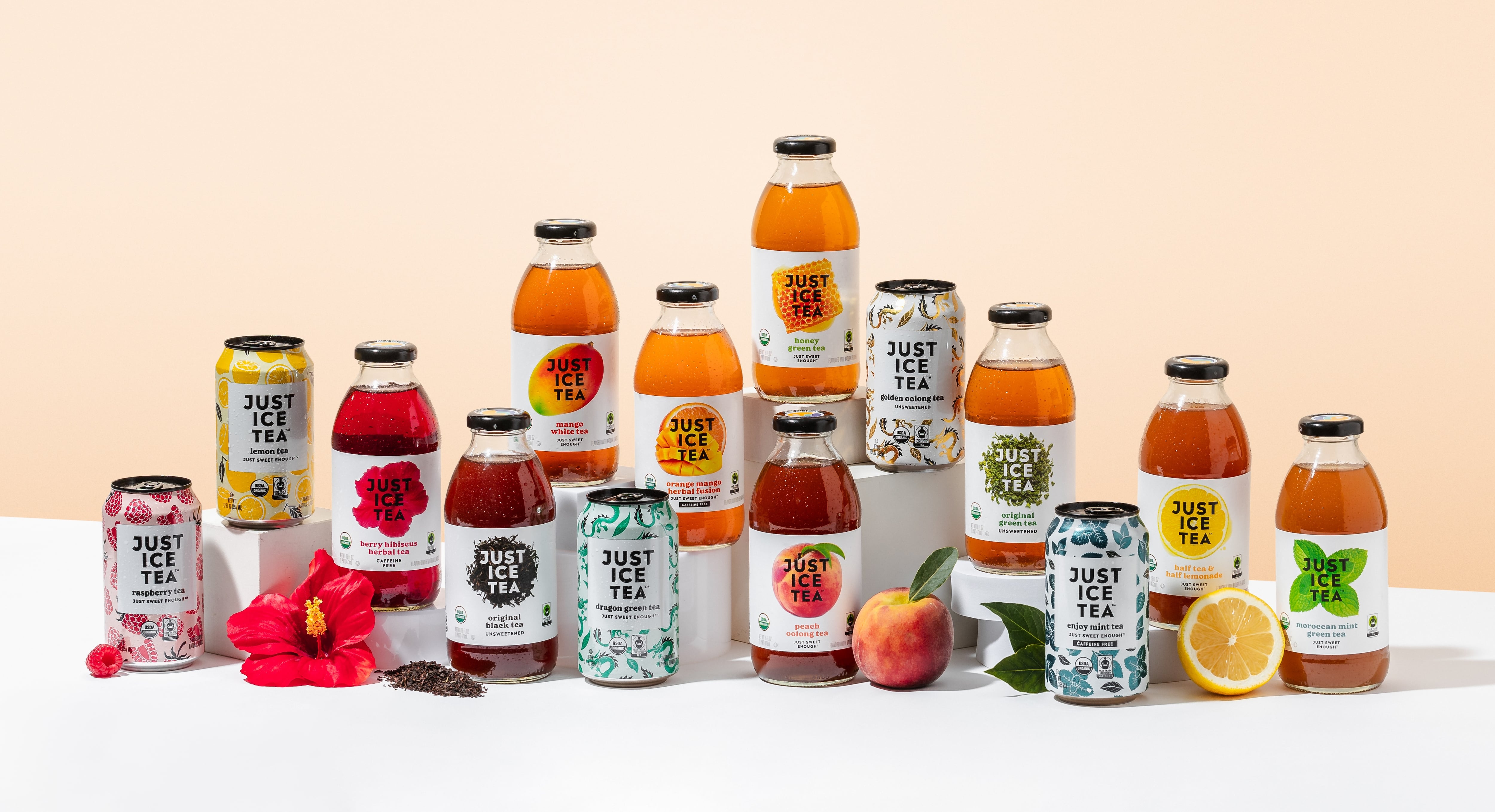
Then retailers. They’ve got a lot more sophisticated with their ability to market to their shoppers so we’re working with them.
And we’re working on food service channels as well because that’s where you get trial. So many times I hear, ‘oh, I’ve tried this at the bagel shop, or I bought this at the salad place, then I became a regular customer’.
You’re described as an ‘activist entrepreneur’. What does that mean?
Prior to being in business, I was working in the non-profit sector in the public sector.
I had been a government major in college, so I was of the mindset that I was going to try to make change happen through government and elected office. And for me, what I’ve seen is that the things I care about can be addressed in the marketplace, and in some ways - not always, but often there’s a chance to make those changes more lasting.
Because the election they’re based on happens every day. Every day, when people elect to buy something – or not buy something – they’re voting with their dollars.
Think of it as a vehicle to address economic opportunity through the marketplace. There’s nothing about our business model that’s inefficient. Yes, we do pay more for Fair Trade, but these premiums are based on our ability to charge a somewhat premium price, and consumers are wiling to pay that, we’re wiling to support these communities.
And then it’s a creative question. How are we able to find ways to drive purchase to get consumers excited about what we’re doing? That’s a challenge, but the challenge we signed up for.
Your experience is extremely diverse: from Tony’s Chocoloney to Beyond Meat. How does that help you build a beverage brand?
There’s lots of things. Certainly it helps thinking about how we communicate with consumers. One of the words I always come back to is authenticity: authentic ingredients, authentic sharing of the story. In these categories, fake doesn’t work. Transparency is important.
And then, interacting with key stakeholders. The first one is employees: how do you create employee passion and so one of those things is through employee ownership and employee engagement. That’s something that has been part of all the different enterprises I’ve been part of.
And the CEO has three key roles. One is to create that vision and to get everyone excited about it and to buy into it. The second one is to find the people and assemble the people and to deploy the people in the right way to make it work. And then the third is to raise the resources. So over time, learning to talk with investors and help give them a sense of what we’re trying to achieve and how to reward them for making that bet with us.
And so if you do all three of those things – and do them well – you get the chance to do it more.
You’re clearly a pro. Does that make it easy?
It does make it easier. Your instincts are better. I’ve been fortunate because I work with some amazing people, and I know the people who are really good.
And it becomes less stressful because, having been through enough different experiences, I can say: ‘OK, I know how to deal with this’. Or just have enough perspective that I don’t get as freaked out as I used to!
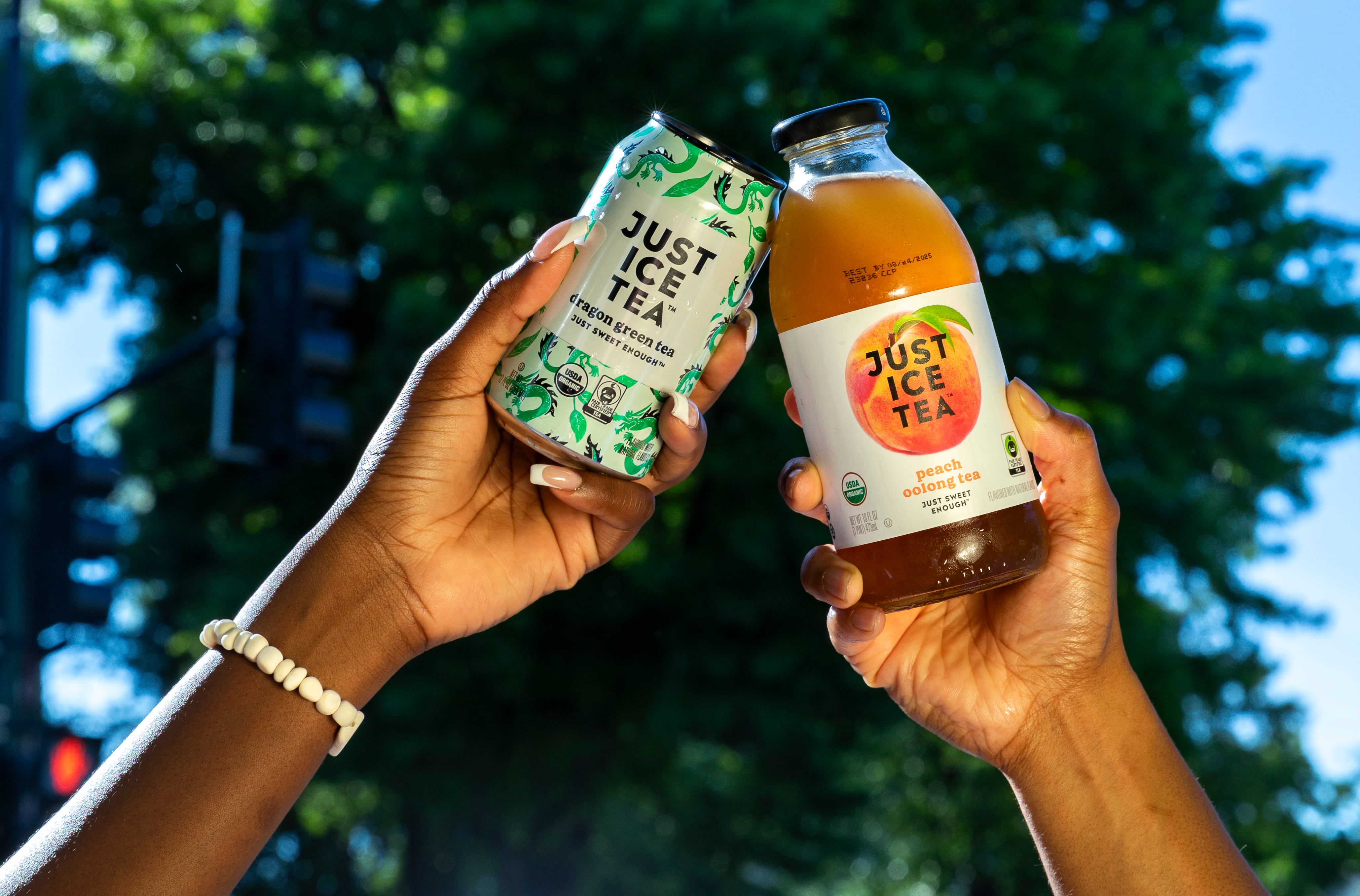
Selling Honest Tea to Coca-Cola required letting go of a brand you’d built up from nothing. Then you hear they’re shutting it down. Sounds like a roller coaster of emotions – how’d you get through that?
Coca-Cola was actually very exciting because this vision of organic and Fair Trade was being adopted by the world’s largest beverage company. That was really exciting and I stayed through 2019. I got to be part of the expansion in Europe, and I got to see Honest Kids, our kids line, carried in places like McDonald’s and Wendy’s and Subway and Chick-fil-A, all these places I had dreamed about.
Even when I got the news that Honest Tea was to be discontinued, they did say Honest Kids was succeeding greatly and it’s now over half a billion dollars as a brand in revenue. So that goal of trying to mainstream organic in many ways was achieved.
Of course I was disappointed about Honest Tea. I’ve described it as a ‘gut punch’ and it was. It was just really sad. Not just for me, but for all the people who’d been involved in building Honest Tea.
And then within a week it became a call to action to go back at it. So then it was reinvigorating. It continues to be reinvigorating and it’s wonderful to hear the support we get from consumers, employees and retailers as well.
So at the end of the day, I don’t have any regrets. I really don’t. I don’t even have regrets about selling Honest Tea to Coca-Cola: based on the people we knew at the time and their vision for what it was, it was the right decision.
And the comfort was it wasn’t compromised along the way. Coca-Cola never said ‘let’s cut out the organic or the fair trade or make it sweeter’. The brand was put to rest with its integrity fully intact.
So for me, on the one hand it was sad, but on the other it created this opportunity we now have.
I’ve used the word karma: we’re benefiting a lot from the good karma we created with Honest Tea and that’s been transferred to Just Ice Tea and this second life is very, very positive.
What’s your top tip to other beverage brand builders?
You’ve got to find proof of concept. We would never try to go to Target first: and of course we would never get that opportunity first. We proved the brand works in the natural channels and that opened the door for Target.
But going back to the Honest Tea days, we had to prove Honest Tea was going to work and there wasn’t even a natural channel. We started in 17 stores in the mid-Atlantic.
You’ve got to start somewhere, usually small, to prove your concept works. And of course, along the way, you learn what’s working, not working. Really micromanage those stores and hear the consumer, learn about what’s needed, before trying to take it bigger.
What’s your favorite part of your job as CEO?
My favorite part is that every day has different challenges and different rewards.
Over the long term, there’s three parts. The first is the impact we get to have in these communities and seeing that and seeing that come to life.
The second is the impact we have on these consumers and hearing about how much they enjoy our products and what a positive constructive role it plays in their lives. Sometimes it’s because it’s helped them get healthier; other times because it’s that bright moment in their day where they get to enjoy the drink and read the bottle cap quote and just feel like it’s a treat for themselves.
And then of course the other one is the employees who develop and take on new challenges. In American sports they have what’s called a coaching tree. So the coaching tree of Honest Tea is actually very impressive. A bunch of people who worked with us went on to found other really great companies in the US, or become leaders in in other companies. Seeing our people develop their own businesses is just wonderful.
How do you start and end your working day?
I’m very fortunate that I’m able to bike to work every day. That allows a great transition to move from home to work. And of course at the end of the day, once it’s all wrapped up, I bike home again.
7 deadly things
What’s your poison? Chocolate almond milk!
What’s your worst vice? Because of the work I do, I do fly on aeroplanes.
Worst work mistake? With Honest Tea, we became a part owner in a bottling plant. It was a huge distraction: it required time and energy and money and it was not about building the business and the brand.
Biggest waste of money? That bottling plant
An entrepreneur you’re jealous of? I was a founding board member of a company called Happy Family, which was an organic baby food company. They eventually sold to Danone. It was run by two amazing women and they have both gone on to lead new companies, and I'm an investor in both.
Lovevery – from Jessica Rolph - is a toy company for babies and now younger children. They are the trusted authority on parenting. And HealthyBaby – Shazi Visram - does personal care products for babies and families, again a beautiful company.
When has your pride caused a fall? With Beyond Meat, we – the whole category - were so excited about what we were building that we didn’t take the sceptics seriously. There were people, particularly in the meat industry, who were suggesting animal-based meat was more environmentally friendly than plant-based and that’s just so absurd there’s no way someone would accept that. But if you don’t respond to it, those narratives can take hold.
We were too confident in what we were offering we didn’t take those narratives as real threats.
What makes you most angry? The only way we succeed as a company is if we can move quickly – and if we can communicate quickly and make decisions quickly. So I would say if a teammate is not responsive, that would get me.
If I get an email, I respond within 24 hours, and if I can’t get back to someone in 24 hours, I send them a note saying I’m not going to be able to get back to you but I’ll try and get the answer.

